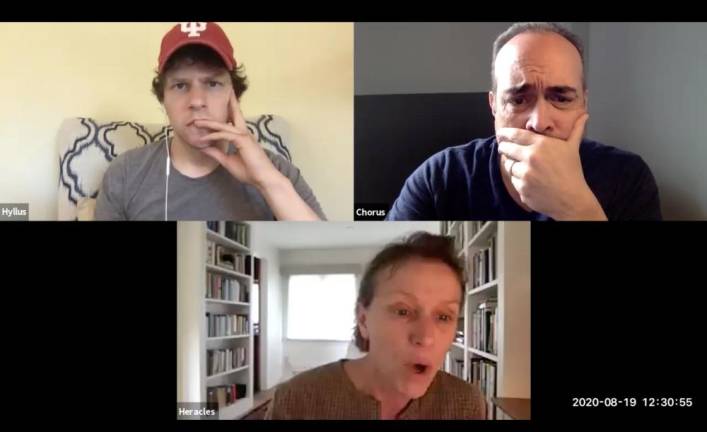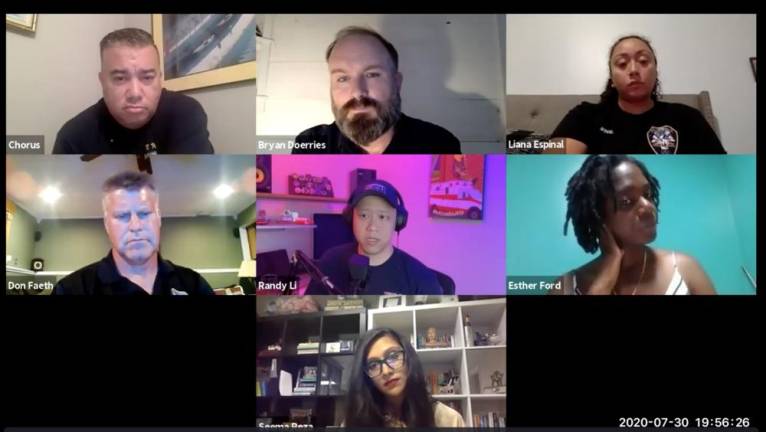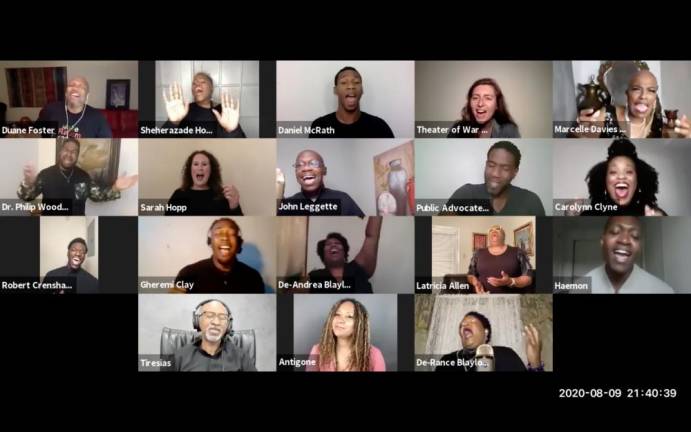I have reported on the stage scene for several years, but I confess I had never heard of Theater of War. But since all the curtains came down, this company has presented some of the most enlightening and oddly gratifying works. Its current offerings present scenes from Greek tragedies of long ago, followed by an hour with today’s overburdened health care providers. The resonance they find with a guy named Sophocles is almost uncanny.
I tracked down TOW’s artistic director (and co-founder) Bryan Doerries, to find out more about his project. I learned this is not a stage company, but rather a “social impact” entity, “using theater as a tool to draw attention to our country’s problems,” explained Doerries. It has been around twelve years and performed more than a thousand live performances: partnering with everyone from Lincoln Center, BAM and the Guggenheim Museum to homeless shelters and Rikers Island. It is anti-capitalist in nature (“we are not beholden to the wealthy”) and the issue is, well, issues. In the past, that may have been incarceration, drug abuse, veterans, and the homeless. Now, it is all pandemic all the time.
Theater of War has flawlessly pivoted to Zoom, and many from around the world have tuned in. One key reason is the actors TOW manages to attract. Oscar Isaac and David Strathairn starred in ”The Oedipus Project,” Jeffrey Wright in “Book of Job,” Amy Ryan in “Ajax,” and Frances McDormand and Jesse Eisenberg in “Philoctetes.” On September 3, there will be a British version of “The Oedipus Project,” starring Damian Lewis of “Billions” fame. In the past, Jake Gyllenhaal, Debra Winger, Blythe Danner and more have contributed their time and talent.
Oscar and Tony Award nominee Amy Ryan participated in a TOW reading/discussion several years ago for military personnel, “many who had never seen theater before,” she says. “I saw right then how communities can heal through conversation.” She points out a “weird silver lining” to this time. “We used to play in churches or libraries, now we are reaching thousands.” She will be doing her next one, Sophocles’ “Women of Trachis,” on September 16. It will connect with health care workers at Lenox Hill Hospital who specialize in end-of-life.
You may wonder how those workers, watching from their hospitals or clinics, are relating to what they watch. Consider lines like, “it lacerates from within,” “gaze upon the disease of my tormented body,” and “bring them all to me so they may hear my last words.” Maria Lopez said, “I work with patients who are abandoned, and I have to tell them their loved ones can’t come in.” Lisa, an ICU worker, added “it was hard to watch this, because the pain that I see every day is agony.”
Anthony Almojera is an interesting case, going from EMS advocate to actor, to hearing the lines to reciting them. He was part of the after-show panel for “Oedipus Project,” making impact with his words. “Then, Bryan asked about my background, and when I mentioned I had done some theater years ago, he said I should act in one ... and then I did! I think the prism of theater for understanding societal issues is incredibly important. Greek tragedies being especially good.”
Who knew? Thanks to Theater of War, many more of us do.
“I think the prism of theater for understanding societal issues is incredibly important. Greek tragedies being especially good.” Anthony Almojera, EMS advocate and actor


